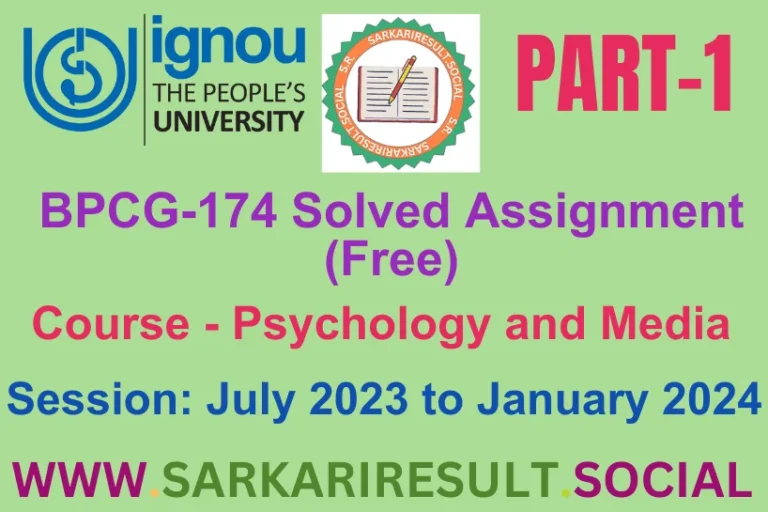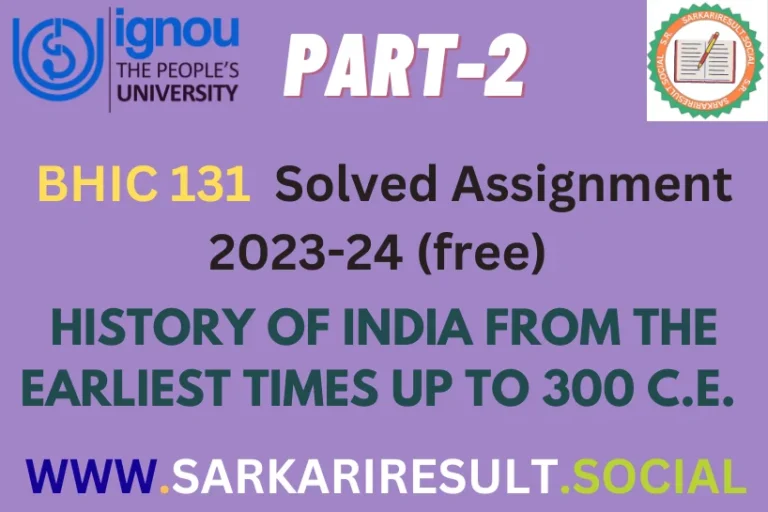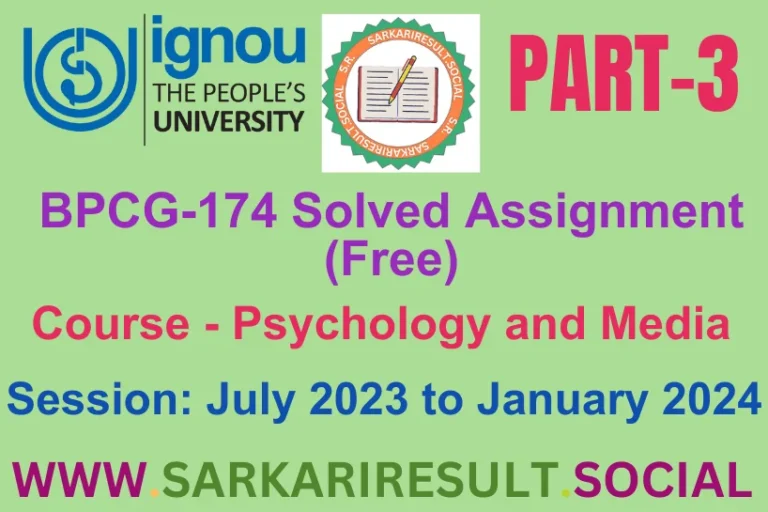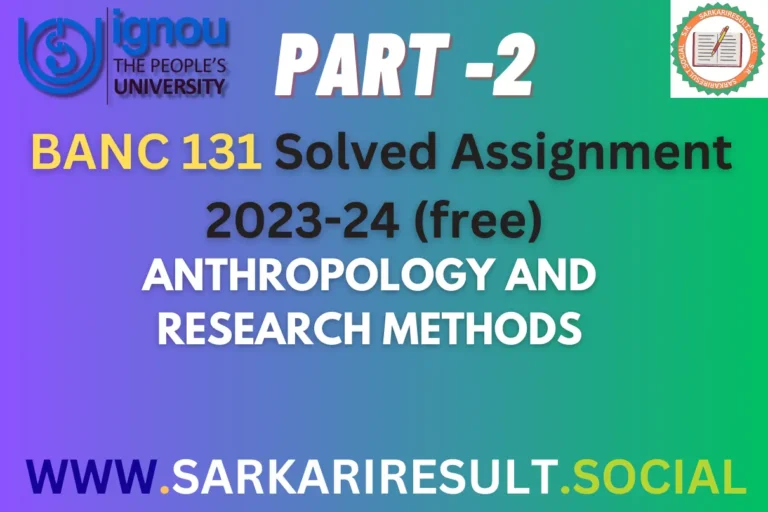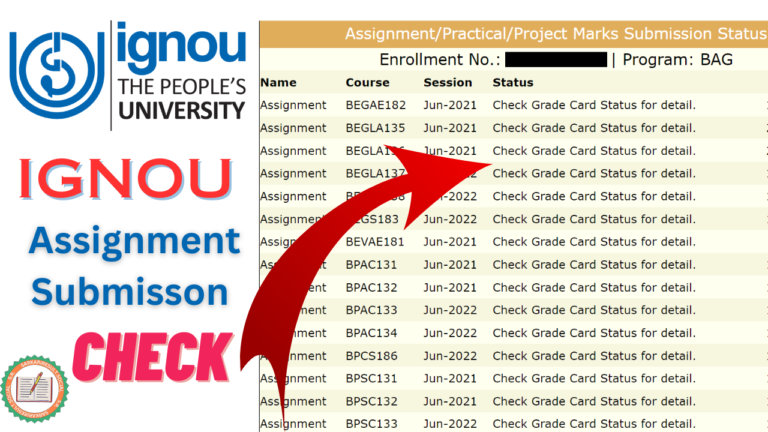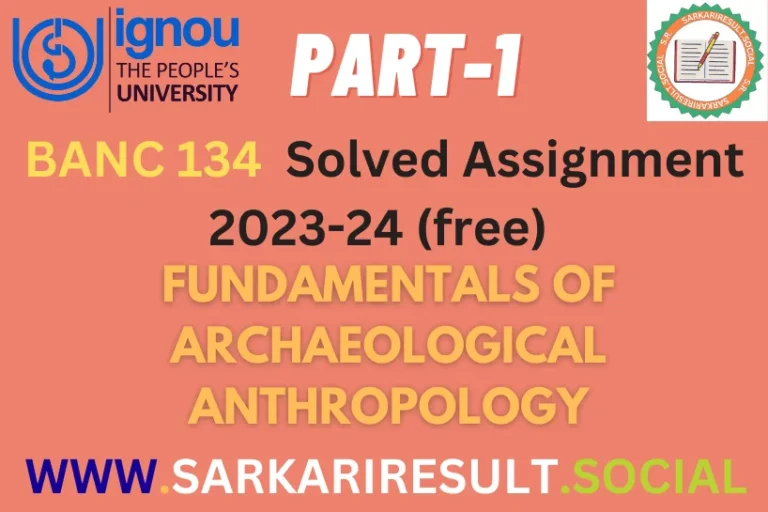BPSC 131 SOLVED IGNOU ASSIGNMENT FREE PART 1
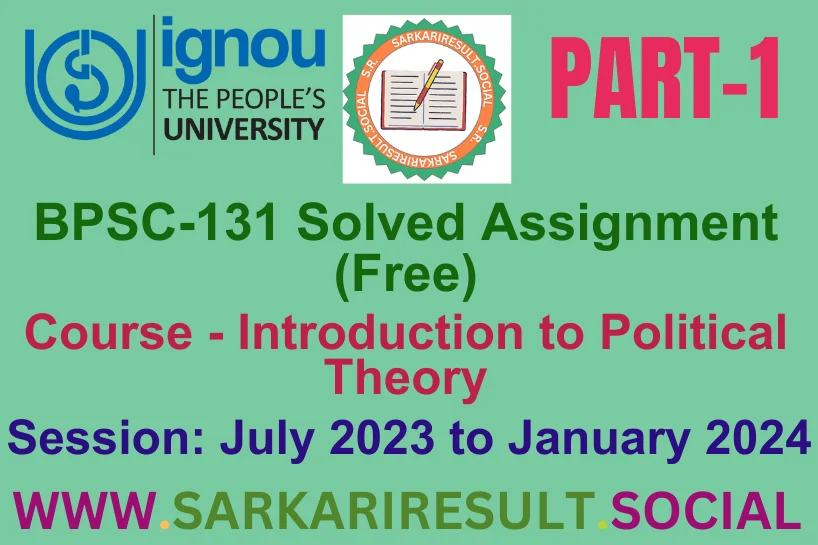
Welcome to the BPSC 131 SOLVED IGNOU ASSIGNMENT FREE PART 1 TMA. Assignment – I presents two comprehensive questions. In about 500 words each, write a note on politics as a political activity, and examine the interface of political theory and inter-related terms. Our concise responses provide a clear and efficient path for comprehending these critical aspects of political theory, ensuring a successful completion of your assignments.

Answer the following in about 500 words each.
Q.1 Write a note on politics as a political activity.
Ans. Politics, as a political activity, is the dynamic process through which individuals and groups seek to exert influence, make decisions, and allocate resources within a society. It is the means by which conflicting interests are negotiated and resolved, ultimately shaping the policies and governance structures of a community, state, or nation.
At its core, politics is about power—how it is acquired, exercised, and distributed. Power can manifest in various forms, including political, economic, social, and cultural power. Political activity, therefore, encompasses a wide range of actions and behaviors aimed at securing and maintaining power, influencing policy decisions, and achieving specific goals.
1. Decision-Making:
– Legislative Process: In representative democracies, political activity occurs within legislative bodies where elected representatives debate, propose, and vote on laws.
– Policy Formulation: Political actors, including policymakers and interest groups, engage in the formulation of policies that address societal issues.
2. Elections and Campaigns:
– Electoral Politics: Political parties and candidates compete for public support through elections, engaging in campaigns to convey their vision and gain votes.
– Voter Participation: Citizens participate in political activity by exercising their right to vote, influencing the composition of governments.
3. Advocacy and Lobbying:
– Interest Groups: Organizations and individuals engage in advocacy and lobbying to influence policymakers on specific issues.
– Public Opinion Shaping: Political actors utilize media and communication strategies to shape public opinion, mobilizing support for their causes.
4. Governance and Administration:
– Public Administration: Political decisions are implemented through government agencies responsible for delivering public services and enforcing laws.
– Bureaucracy: Public officials and civil servants play a crucial role in the implementation and administration of policies.
5. Social Movements:
– Activism: Social movements represent a form of political activity, advocating for social, political, or environmental change.
– Protests and Demonstrations: Citizens express discontent or push for change through organized protests.
6. International Relations:
– Diplomacy: Nation-states engage in diplomatic activities to establish relations, negotiate treaties, and address global challenges.
– International Organizations: Political activity occurs within international bodies where countries collaborate on issues such as climate change, trade, and peacekeeping.
7. Conflict Resolution:
– Negotiation and Mediation: Political actors engage in negotiations to resolve conflicts peacefully, often with the involvement of mediators.
– Security Policies: Governments formulate and implement security policies to address internal and external threats.
8. Civic Engagement:
– Community Involvement: Citizens participate in local politics through community organizations, town hall meetings, and grassroots initiatives.
– Volunteerism: Political activity extends to volunteering for political campaigns, community projects, or charitable organizations.
9. Constitutional Processes:
– Constitutional Amendments: Political activity may involve amending or revising the constitution to adapt to changing societal norms and needs.
– Judicial Review: Courts engage in political activity through judicial review, interpreting laws and ensuring their constitutionality.
10. Education and Ideology:
– Political Education: The dissemination of political knowledge and ideologies influences public perceptions and values.
– Ideological Debates: Political activity includes debates and discussions that shape societal ideologies and political culture.
In essence, politics as a political activity is an ongoing, multifaceted process that reflects the complex interplay of interests, values, and power dynamics within societies. It is not confined to the activities of politicians but encompasses the broader engagement of citizens, interest groups, and institutions in shaping the collective destiny of a community or nation.
Q.2 Examine the interface of political theory and inter –related terms.
Ans. Political theory serves as a critical lens through which we analyze and understand the complex dynamics of political systems, governance, and societal structures. This examination involves an exploration of various interrelated terms that shape the discourse in political theory.
1. Power:
– Definition: Power, in political theory, is the ability to influence or control the behavior of others.
– Political Theory Interface: Political theory delves into the sources and dynamics of power. Concepts like political authority, legitimacy, and coercion are explored to understand how power operates within a society.
2. Justice:
– Definition: Justice, in political theory, pertains to fairness and the distribution of benefits and burdens in a society.
– Political Theory Interface: Different theories of justice—utilitarianism, egalitarianism, communitarianism—provide frameworks for evaluating social and political arrangements. Concepts like fairness, equality, and the social contract are central to these discussions.
3. Rights:
– Definition: Rights are moral or legal entitlements that individuals possess.
– Political Theory Interface: Political theory investigates the foundations of rights. It distinguishes between positive and negative rights, explores the concept of natural rights, and discusses the tension between individual rights and societal interests.
4. State:
– Definition: The state is a political entity with the authority to govern a specific territory and its population.
– Political Theory Interface: Political theory examines the nature and purpose of the state. Theories like liberalism, socialism, and anarchism provide different perspectives on the role of the state in relation to individual freedoms and societal well-being.
5. Governance:
– Definition: Governance refers to the processes and structures by which political decisions are made and implemented.
– Political Theory Interface: Political theory engages with questions of good governance, the role of institutions, and the relationship between rulers and the ruled. Concepts like democracy, accountability, and legitimacy are central to this discourse.
6. Freedom:
– Definition: Freedom refers to the absence of coercion or constraints on individual actions.
– Political Theory Interface: Political theory explores the different dimensions of freedom—negative freedom (freedom from interference) and positive freedom (freedom to fulfill one’s potential). Debates surrounding individual autonomy and state intervention are crucial.
7. Equality:
– Definition: Equality involves fairness and the absence of discrimination in the distribution of resources and opportunities.
– Political Theory Interface: Political theory examines various conceptions of equality, including social, economic, and political equality. Theories like egalitarianism and feminism contribute to discussions on achieving a just and equal society.
8. Democracy:
– Definition: Democracy is a system of government where power is vested in the hands of the people.
– Political Theory Interface: Political theory critically evaluates different models of democracy, explores the challenges of representative democracy, and discusses issues related to participation, deliberation, and majority rule.
9. Citizenship:
– Definition: Citizenship denotes the legal and political status of individuals in a state.
– Political Theory Interface: Political theory analyzes the concept of citizenship, addressing questions of inclusion and exclusion. Debates on cosmopolitanism and global citizenship expand the discourse beyond national borders.
10. Globalization:
– Definition: Globalization is the interconnectedness and interdependence of nations in economic, political, and cultural terms.
– Political Theory Interface: Political theory engages with the impact of globalization on state sovereignty, citizenship, and economic justice. Theories of global governance and cosmopolitan democracy contribute to understanding political dynamics in a globalized world.
In conclusion, the interface of political theory and its interrelated terms creates a robust framework for comprehending and critiquing political phenomena. This interdisciplinary engagement allows for a nuanced exploration of power structures, ethical considerations, and the principles that underpin just and equitable societies.
Also See This: BPSC 131 SOLVED IGNOU ASSIGNMENT FREE PART 2

